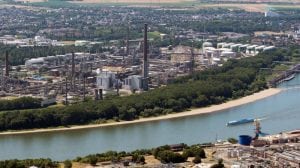Royal Dutch Shell plc (The Hague, the Netherlands; www.shell.com) and ITM Power will build the world’s largest hydrogen electrolysis plant at Rheinland refinery, Germany. With a peak capacity of 10 megawatts, the hydrogen will be used for the processing and upgrading of products at the refinery’s Wesseling site as well as testing the technology and exploring application in other sectors.
The European partner consortium of Shell, ITM Power, SINTEF, thinkstep and Element Energy has now secured €10 million in funding from the European “Fuel Cell Hydrogen Joint Undertaking”. The project’s total investment, including integration into the refinery, is approximately €20 million.
Detailed technical planning and the approval process will now begin. The plant, named “Refhyne” is scheduled to be in operation in 2020 and will be the first industrial scale test of the polymer electrolyte membrane technology process.
“This new unit at Rheinland enables hydrogen to be made from electricity rather than natural gas. A unit of this kind brings a flexibility that can help the stability of the power grid, thereby facilitating more use of renewable electricity”, explains Lori Ryerkerk, Executive Vice President of Shell Manufacturing. “In addition, if powered by renewable electricity, the green hydrogen will help reduce the carbon intensity of the site – a key goal for us.”
Currently the Rheinland refinery, Germany’s largest, requires approximately 180,000 metric tons per year (m.t./yr) of hydrogen, which is produced by steam reforming from natural gas. The new facility will be able to produce an additional 1,300 m.t. of hydrogen per year, which can be fully integrated into the refinery processes, such as for the desulfurization of conventional fuels.
Shell Rheinland Refinery General Manager Thomas Zengerly highlights: “We are pleased to be working collaboratively with the European Union and to assist in developing Europe’s future energy system by testing this technology at the Wesseling site. If successful there is potential for this technology to be expanded at our refinery.”
Hydrogen has the potential to play an important role in the energy transition. Today, hydrogen is already being used in transport by fuel cell vehicles, as well as in industrial applications. When used in transport, hydrogen can help improve local air quality, as the only emissions of fuel cell vehicles is water vapor. When the hydrogen is produced from renewable sources, it can help improve CO2 emissions from the transport sector. Shell is taking part in several initiatives to build up a hydrogen refueling network for transport in a number of markets, including Germany.
